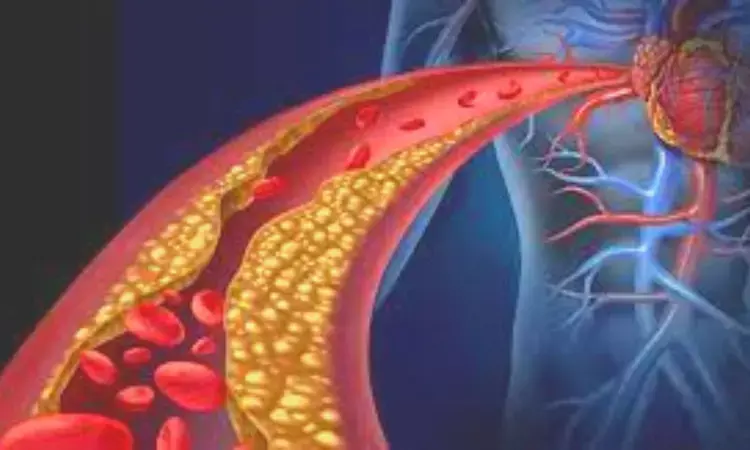- Home
- Medical news & Guidelines
- Anesthesiology
- Cardiology and CTVS
- Critical Care
- Dentistry
- Dermatology
- Diabetes and Endocrinology
- ENT
- Gastroenterology
- Medicine
- Nephrology
- Neurology
- Obstretics-Gynaecology
- Oncology
- Ophthalmology
- Orthopaedics
- Pediatrics-Neonatology
- Psychiatry
- Pulmonology
- Radiology
- Surgery
- Urology
- Laboratory Medicine
- Diet
- Nursing
- Paramedical
- Physiotherapy
- Health news
- Fact Check
- Bone Health Fact Check
- Brain Health Fact Check
- Cancer Related Fact Check
- Child Care Fact Check
- Dental and oral health fact check
- Diabetes and metabolic health fact check
- Diet and Nutrition Fact Check
- Eye and ENT Care Fact Check
- Fitness fact check
- Gut health fact check
- Heart health fact check
- Kidney health fact check
- Medical education fact check
- Men's health fact check
- Respiratory fact check
- Skin and hair care fact check
- Vaccine and Immunization fact check
- Women's health fact check
- AYUSH
- State News
- Andaman and Nicobar Islands
- Andhra Pradesh
- Arunachal Pradesh
- Assam
- Bihar
- Chandigarh
- Chattisgarh
- Dadra and Nagar Haveli
- Daman and Diu
- Delhi
- Goa
- Gujarat
- Haryana
- Himachal Pradesh
- Jammu & Kashmir
- Jharkhand
- Karnataka
- Kerala
- Ladakh
- Lakshadweep
- Madhya Pradesh
- Maharashtra
- Manipur
- Meghalaya
- Mizoram
- Nagaland
- Odisha
- Puducherry
- Punjab
- Rajasthan
- Sikkim
- Tamil Nadu
- Telangana
- Tripura
- Uttar Pradesh
- Uttrakhand
- West Bengal
- Medical Education
- Industry
Elevated LDL-C Tied to Coronary Artery Calcification in Asymptomatic Type 2 Diabetes Patients, Study Finds

China: A recent longitudinal study has highlighted the predictive role of low-density lipoprotein cholesterol (LDL-C) in coronary artery calcification (CAC) events among patients with type 2 diabetes mellitus (T2DM). The researchers revealed that elevated LDL-C predicts CAC in asymptomatic patients with T2DM.
"Over a follow-up period of 29.9 months, CAC developed in 33.6% of participants, with its incidence increasing in parallel with LDL-C levels. Patients in the highest LDL-C category faced more than three times the risk (HR 3.38) compared to those in the lowest group, further establishing LDL-C as a key marker of cardiovascular risk in T2DM," the researchers reported in Diabetology & Metabolic Syndrome.
Coronary artery calcification is a significant predictor of cardiovascular disease, while LDL cholesterol plays a crucial role in developing atherosclerotic conditions. Patients with type 2 diabetes often exhibit elevated LDL-C levels; however, its association with incident CAC in asymptomatic individuals remains uncertain. For this purpose, Yongli Li, People’s Hospital of Zhengzhou University, Zhengzhou, Henan, China, and colleagues aimed to examine the relationship between LDL-C levels and the occurrence of CAC in asymptomatic T2DM patients, potentially establishing LDL-C as a valuable indicator for clinical risk assessment.
For this purpose, the researchers conducted a single-center retrospective cohort study from January 2018 to December 2023, enrolling 2,631 asymptomatic T2DM patients who underwent routine health screenings. At baseline, all participants were confirmed to be free of CAC using computed tomography (CT). Based on LDL-C levels, they were categorized into three groups: T1 (0.66–2.43 mmol/L), T2 (2.44–3.18 mmol/L), and T3 (3.19–7.21 mmol/L).
The study followed participants for up to 72 months, with incident CAC as the endpoint. Kaplan-Meier survival analysis with log-rank tests assessed CAC occurrence, while univariate and multivariate Cox proportional hazards models evaluated the LDL-C–CAC association. Subgroup analysis was conducted to validate the robustness of these findings.
The study led to the following findings:
• During a median follow-up of 29.9 months, 885 (33.64%) participants developed incident CAC.
• The cumulative incidence of CAC increased progressively with higher LDL-C levels.
• After adjusting for confounding factors, multivariable Cox proportional hazards regression showed a significant association between LDL-C and incident CAC (HR 1.77).
• When analyzed categorically, higher LDL-C levels were significantly linked to increased CAC risk:
• T2 group: Adjusted HR 1.62.
• T3 group: Adjusted HR 3.38.
• Subgroup analysis confirmed a consistent association between LDL-C and incident CAC.
This study highlights a significant independent association between elevated LDL-C levels and the development of CAC in asymptomatic T2DM patients.
"The findings suggest that LDL-C could serve as a valuable marker for assessing CAC risk, aiding in early cardiovascular risk stratification. However, further validation through prospective multicenter studies across diverse populations, including non-diabetic individuals, is necessary to establish optimal risk thresholds," the researchers wrote.
"Future research should explore the molecular mechanisms linking LDL-C to coronary calcification and assess the impact of lipid-lowering interventions on CAC progression," they concluded.
Reference:
Zou, Z., Sun, Y., Zou, L. et al. Low-density lipoprotein cholesterol predicts coronary artery calcification events in patients with type 2 diabetes: a longitudinal study. Diabetol Metab Syndr 17, 53 (2025). https://doi.org/10.1186/s13098-025-01625-8
Dr Kamal Kant Kohli-MBBS, DTCD- a chest specialist with more than 30 years of practice and a flair for writing clinical articles, Dr Kamal Kant Kohli joined Medical Dialogues as a Chief Editor of Medical News. Besides writing articles, as an editor, he proofreads and verifies all the medical content published on Medical Dialogues including those coming from journals, studies,medical conferences,guidelines etc. Email: drkohli@medicaldialogues.in. Contact no. 011-43720751


